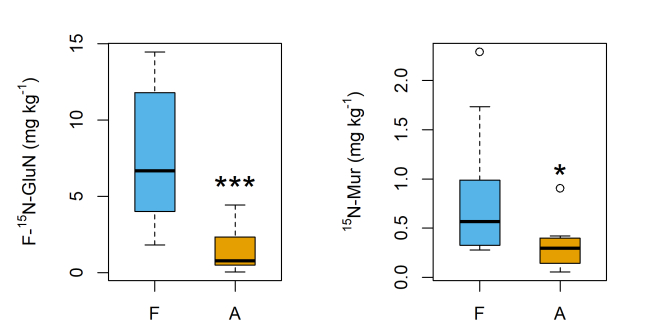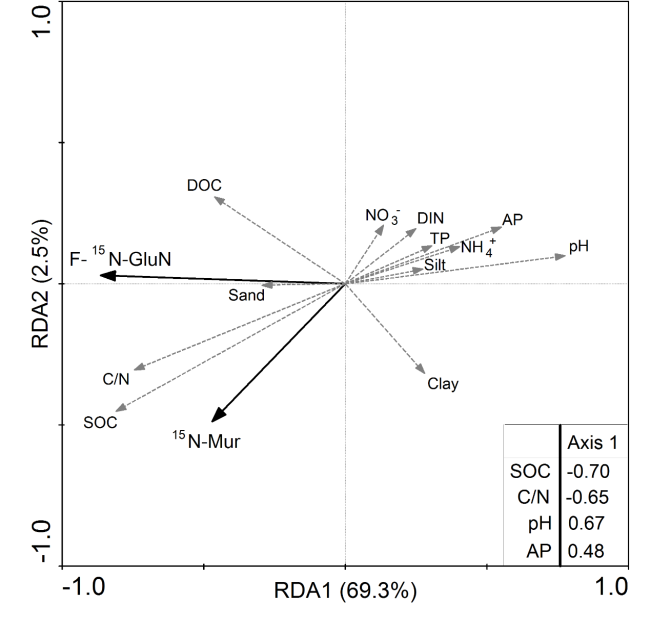
Forest conversion to agriculture has recently been found to result in a substantial decrease in microbial nitrate (NO3- ) assimilation in soil, which is a key cause of NO3- accumulation and thus increases the risk of nitrogen losses from agricultural soils.
However, how and why the respective NO3- assimilation of fungi and bacteria, the dominant microorganisms in soil, respond to land-use change is still unknown.
The study conducted by Dr. LI Xiaobo from South China Botanical Garden of the Chinese Academy of Sciences shows that by adopting amino sugar-based stable isotope probing (AS-SIP), both fungal and bacterial NO3- assimilation are significantly reduced after conversion to agricultural land-use in subtropical zones of China. Moreover, the reduced level of fungal NO3- assimilation (81%) was 20% higher than that of bacteria (61%).
Moreover, the depression of both fungal and bacterial NO3- assimilation was closely associated with the depletion of the quantity and quality of soil organic carbon, but the former was also highly correlated with the increase in available phosphorus and pH.
The study, through disentangling fungal and bacterial NO3- immobilization processes in soil, further reveals the microbially driven mechanisms underlying the depression of NO3- immobilization after land conversion from forest to agriculture.
The study was published in Soil Biology and Biochemistry titled "Distinct responses of soil fungal and bacterial nitrate immobilization to land conversion from forest to agriculture".

Fig. 1. The effects of agricultural use on the nitrate immobilization capacities of (a) fungi (F-15N-GluN) and (b) bacteria (15N-Mur) in forest (F) and agriculture (A) sites. Thick horizontal bars (black) show the median. (Image by LI Xiaobo)

Fig. 2. Redundancy analysis (RDA) biplot depicting the relations of NO3- assimilation capacities of fungi and bacteria with the edaphic properties in different land-use soils. (Image by LI Xiaobo)

86-10-68597521 (day)
86-10-68597289 (night)

52 Sanlihe Rd., Xicheng District,
Beijing, China (100864)

